Urdu Poetry Books Biography
Source(google.com.pk)
Tullu (Dawn) – published by Saghar Nizami, Adabi Markaz, Meerut in 1933. Foreword by Saghar Nizami.
Noor-e-Mashriq (The Light of the East) – published by Jyoti Prasad Gupta, Jyoti Printing Works, Esplanade, Delhi in 1937. Introductions by Josh Malihabadi,Editor, Kaleem, Delhi, Hakim Azad Ansari (1871–1942) and Manzar Siddiqui, Editor, Kanwal, Agra.
Zia Ke Sau Sher (A Hundred Verses of Zia) – published by Gajender Lal Soni, Mohan Building, near Lloyd's Bank, Delhi in 1938.
Nai Subah (The New Morn) published by Adaaraa Seemab,Daryaganj, Delhi in 1952. Forewords by Munavvar Lakhnavi (1897–1970) and Prof. Mubashshir Ali Siddiqui M.A.(died 1987)
Gard-e-Raah (The Road Dust)- published by Maktaba Shola aur Shabnam, Daryaganj, New Delhi in 1963. Foreword by Abr Ahasani Gunnauri (1898–1973) and Khushtar Girami (1902–1988)
Husn-e-Ghazal (The beauty of Ghazal)- published by Miraj Mittal, Ambala in 1964.
Dhoop Aur Chandni (The Sunlight and the Moonlight) – published by Radha Krishan Sehgal, Bazm-e-Seemab, J 5/21,Rajouri Garden, New Delhi in 1977.
Rang-o-Noor (The Colour and the Light) – published by R.K.Sehgal, Bazm-e-Seemab, J 5/21, Rajouri Garden, New Delhi in 1981 (prize awarded by U.P.Urdu Academy).
Soch ka Safar (The Journey of Thought) – published by R.K.Sehgal, Bazm-e-Seemab, J 5/21, Rajouri Garden, New Delhi in 1982.
Naram garam hawain (The soft Warm Air) – published posthumously by R.K.Sehgal, Bazm-e-Seemab, J 5/21, Rajouri Garden, New Delhi in 1987 with the aid of Delhi Urdu Academy.
Meri Tasveer (My Portrait)- published by GBD Books,I-2/16, Ansari Road, Daryaganj, New Delhi in 2011.
The Qat'aat o Rubaiyat of Zia Fatehabadi (Quatrains of Zia Fatehabadi, original Urdu text and English Translation by Ravinder Kumar Soni And Sushil Soni) – published by Pigeon Books, an imprint of GBD Books,I-2/16, Ansari Road, Daryaganj, New Delhi in 2012 commemorating Zia Fatehabadi's Birth Centenary Year.
_____________________________________
The Call of the Marching Bell (Urdu: بان٘گِ دَرا; 'Bāⁿṅg-ē-Darā; published in Urdu 1924) was the first Urdu philosophical poetry book by Allama Iqbal, the great poet-philosopher of the Indian subcontinent. It was translated into English by M.A.K. Khalil (January 1996).
The poems in The Call of the Marching Bell were written by Iqbāl over a period of twenty years; the collection is divided into three parts:
Poems written up to 1905, the year Iqbal left for England. These include nursery, pastoral, and patriotic verses. "Tarana-e-Hindi" ("The Song of India") has become an anthem, and is sung or played in India at national events. "Hindustani Bachon Ka Qaumi Geet" (National Anthem for Indian Children) is another well-known song.
Poems written between 1905 and 1908, the period he spent as a student in Europe. He praises the rationality and pragmatism of the West, but complains about its overt materialism, loss of spirituality, and narrow patriotism, which promises suffering. This situation strengthened his belief in the universal values of Islam, and he resolved to use his poetry to stir Muslims to a renaissance.
Poems written between 1908 and 1923, in which Iqbal reminds Muslims of their past greatness and calls for the brotherhood and unity that transcend territorial boundaries. He urges the ummah to live a life of servitude to God, of sacrifice, and of action so that they may attain once more the high civilisation that was once theirs. "Yam Awr Shair" ("The Poet and the Cradle"), "Shikwa" ("The Complaint to God"), "Jawab-i-Shikwa" ("The Response to the Complaint"), "Khizr-i-Rah" ("Guidance"), and "Tulu'i Islam" ("Light of Islam") are considered among the greatest Islamic poems. Love and the self are important themes throughout this section.
Urdu Poetry Books
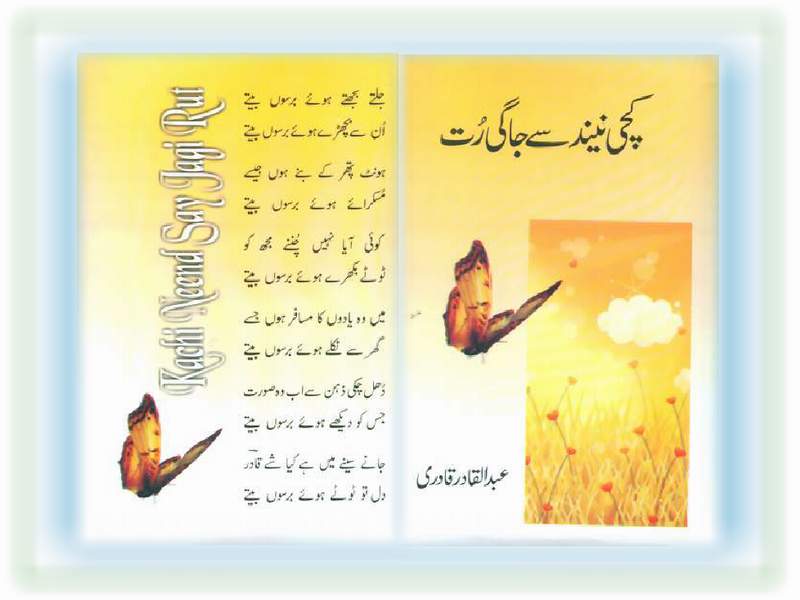

Urdu Poetry Books


Urdu Poetry Books
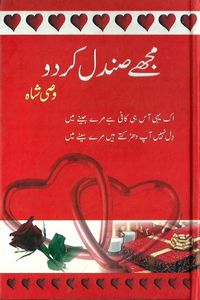

Urdu Poetry Books


Urdu Poetry Books
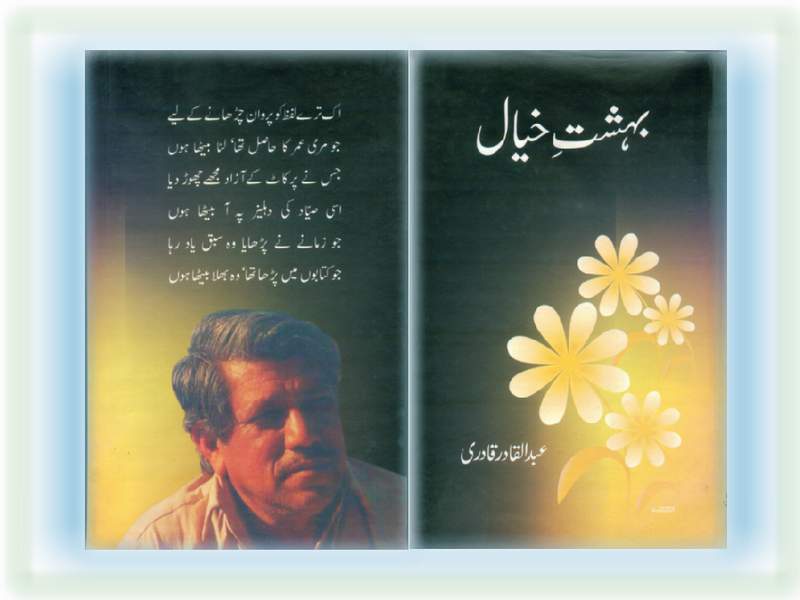

Urdu Poetry Books


Urdu Poetry Books
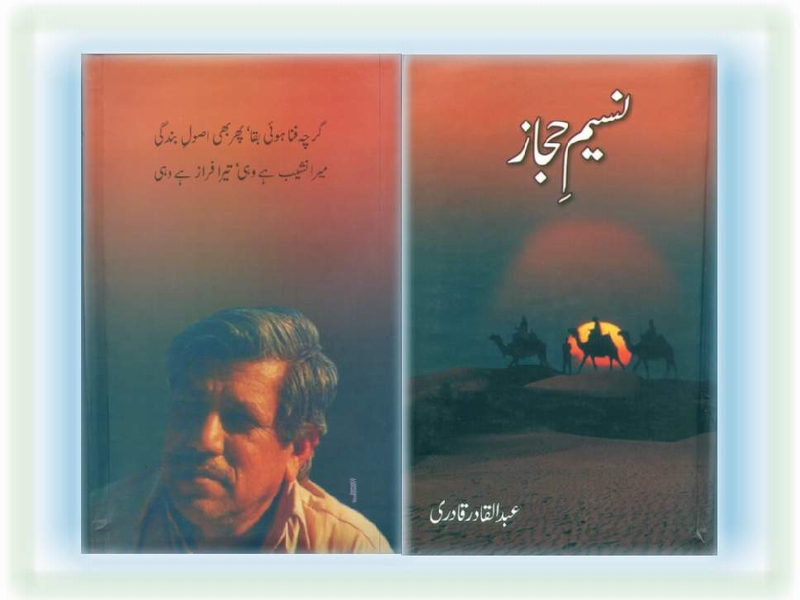

Urdu Poetry Books
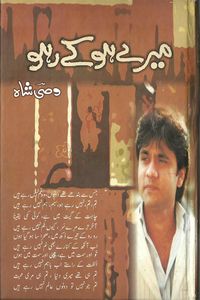

Urdu Poetry Books
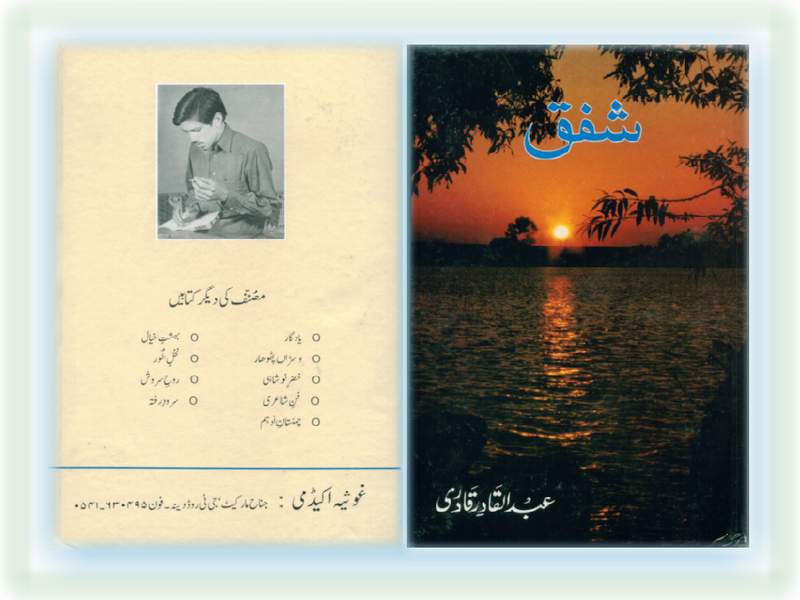

Urdu Poetry Books


Urdu Poetry Books
No comments:
Post a Comment